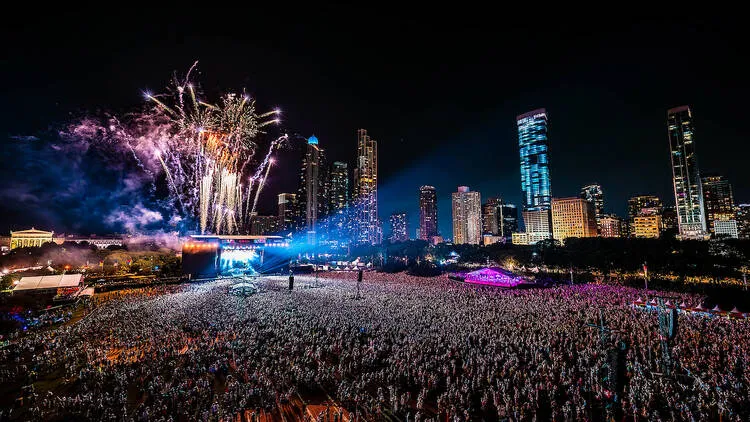Lollapalooza: A Musical Juggernaut’s Enduring Legacy
Lollapalooza, a name synonymous with alternative music and counterculture, has carved an indelible mark on the festival landscape. From its humble beginnings as a traveling showcase in 1991, it has morphed into a global phenomenon, attracting hundreds of thousands of music enthusiasts every year. This essay delves into the rich history of Lollapalooza, exploring its evolution, cultural impact, and the highly anticipated events of Lollapalooza 2024.
Origins and Early Years (1991-1997):
Conceived by Perry Farrell, Jane Weidman, and Marc Geiger, Lollapalooza emerged from the ashes of Jane’s Addiction, Farrell’s iconic band. The inaugural tour in 1991 aimed to showcase the alternative rock scene flourishing underground, featuring a diverse lineup with established acts like Siouxsie and the Banshees, Nine Inch Nails, and Living Colour, alongside burgeoning talents like Pearl Jam and Soundgarden.
Lollapalooza quickly gained notoriety for its multi-stage format, challenging social commentary, and an artistic atmosphere fostered by unconventional art installations and roaming performers. It became a breeding ground for alternative subgenres like grunge and industrial rock, providing a platform for bands that challenged mainstream sensibilities.
The festival’s success was not without challenges. Lineup clashes and logistical hurdles plagued some tours, and internal conflicts led to a hiatus after the 1997 edition. However, Lollapalooza’s impact on the music industry was undeniable. It popularized alternative rock, exposed audiences to a wider range of music, and established the multi-day festival format as a mainstay in the live music scene.
Revival and Global Expansion (2003-Present):
After a six-year break, Lollapalooza returned in 2003 as a destination festival in Grant Park, Chicago. The revamped format retained the spirit of the original tours while incorporating established headliners like Radiohead and The Strokes. The festival’s success in Chicago paved the way for international expansion, with editions sprouting in South America (Chile and Brazil), Europe (France and Germany), and Asia (India).
Lollapalooza’s global reach reflects the universality of music and its ability to transcend cultural barriers. Each international edition features a blend of local and international artists, fostering cultural exchange and showcasing the evolving soundscape of different regions.
Cultural Impact:
Lollapalooza’s influence extends far beyond music. It has become a cultural touchstone, serving as a platform for social activism and environmental awareness. The festival has partnered with various NGOs to raise awareness about critical issues and encourage sustainable practices. Fashion trends are born at Lollapalooza, with festival attire often reflecting broader cultural shifts.
Lollapalooza has also played a significant role in the careers of countless musicians. The coveted Lollapalooza stage has launched the careers of bands like Nirvana, Radiohead, Arcade Fire, and Lorde, solidifying their place in music history.
Lollapalooza 2024: A Glimpse into the Future
While the official lineup for Lollapalooza 2024 hasn’t been announced yet (as of March 20, 2024), based on past trends and the current musical landscape, here’s a potential breakdown of what to expect:
-
Headliners: Lollapalooza consistently attracts the biggest names in music across various genres. In 2024, we might see headliners like:
- Global Pop Sensations: Artists like Taylor Swift, Bad Bunny, or BTS could draw massive crowds with their chart-topping hits and elaborate stage productions.
- Alternative Rock Royalty: Bands like Red Hot Chili Peppers, The Killers, or Arctic Monkeys, who embody the spirit of Lollapalooza’s origins, could return to headline stages.
- Breakthrough Acts: Up-and-coming artists like Olivia Rodrigo, Wet Leg, or Måneskin, riding the wave of critical acclaim and commercial success, could grace the main stage.
-
Genre Diversity: Lollapalooza prides itself on showcasing a wide range of musical styles. Expect subgenres like indie rock, hip-hop, electronic dance music (EDM), and Latin music to be well represented. Artists like Clairo, Kendrick Lamar, Zedd, and J Balvin could be potential additions.
-
Local Flavor: Each Lollapalooza edition incorporates local talent. Expect to see rising stars from India and the surrounding region share the stage with international acts, fostering a truly global musical experience.
